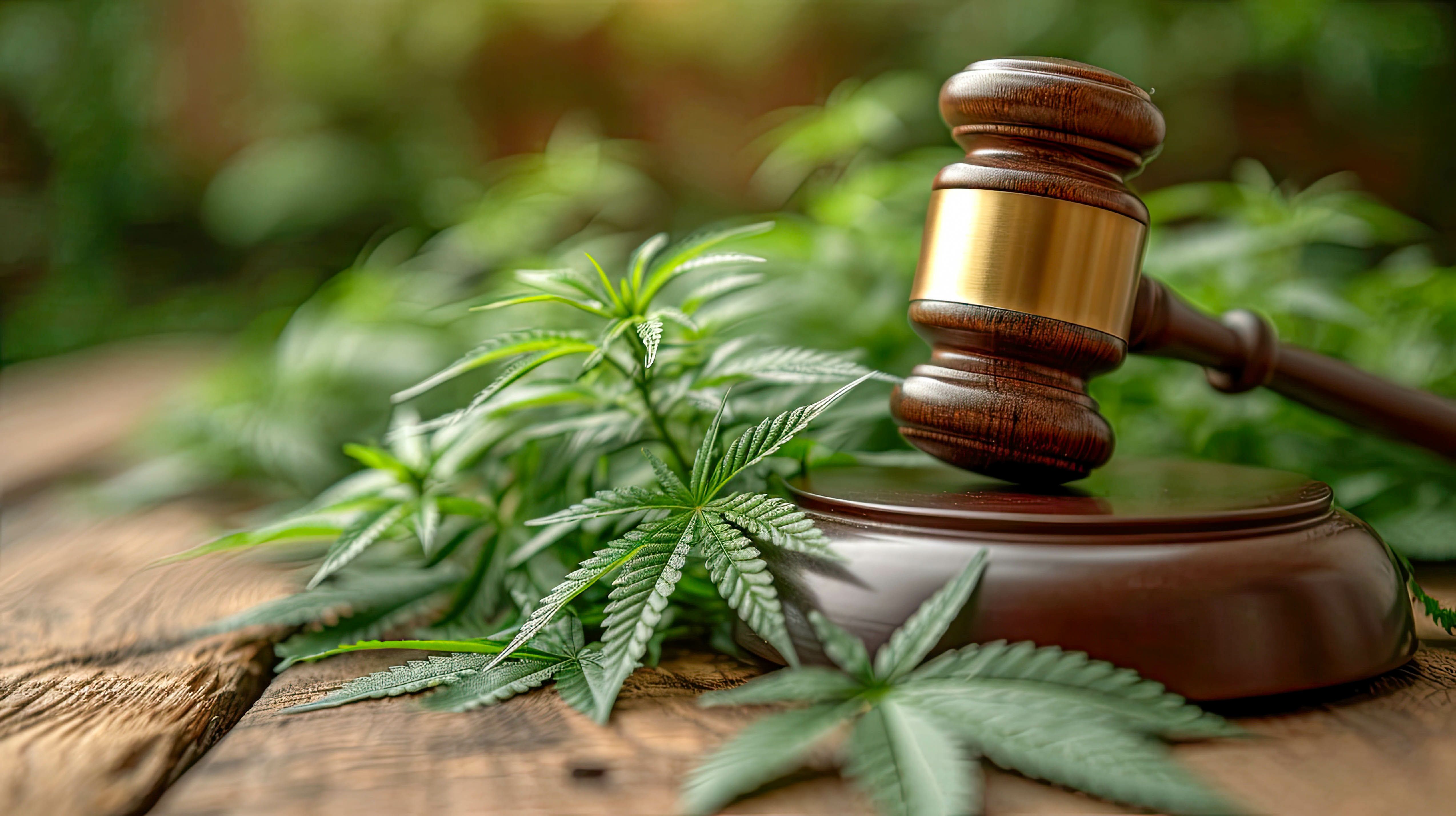Cannabis Legislation Updates from Florida, Virginia, and Kansas
One step forward, two steps back: updates on cannabis legal movements in three different states.
Florida Recreational Cannabis on the Ballot
In early April 2024, the Florida Supreme Court voted 5-2 to allow a cannabis initiative to appear on the ballot this November (1). If the initiative is approved by 60 percent of Florida voters, recreational cannabis would become legal in the state (1). It would allow individuals 21 and older to “possess, purchase, or use marijuana products and marijuana accessories for non-medical personal consumption by smoking, ingestion, or otherwise,” according to the initiative text (2). The initiative was led by Smart & Safe Florida, which helped collect the over 1 million signatures from voters and received funding from Trulieve, the state’s largest medical cannabis business (1). Medical cannabis was approved by voters in 2016 (1).
Florida Attorney General Ashley Moody had requested the Court to reject reportedly confusing language in the ballot, which it did not (1).
“We are thankful that the Court has correctly ruled the ballot initiative and summary language meets the standards for single subject and clarity,” stated Kim Rivers, CEO of Trulieve (1). “We look forward to supporting this campaign as it heads to the ballot this Fall,” (1). Rivers also explained that several companies had combined forces to support the campaign to November (1).
Cannabis law and legal Recreational Weed. Judge gavel with cannabis leaf | Image credit: © Aliaksandra - stock.adobe.com

Cannabis Bills Vetoed in Virginia
On March 28, 2024, Virginia governor Glenn Youngkin vetoed two bills that would have created state-regulated standards for recreational cannabis licenses and sales (3). Currently, home cultivation and possession is legal in small amounts and certain circumstances (3,4). “The proposed legalization of retail marijuana in the Commonwealth endangers Virginians’ health and safety,” the governor stated (4). “It also does not eliminate the illegal black-market sale of cannabis, nor guarantee product safety.”
Governor Youngkin also vetoed a SB 696, which would have created a process for individuals with certain cannabis-related felony convictions before July 2021 to receive a hearing to consider changes to their sentencing (3).
Kansas Medical Cannabis Plan Paused
Also on March 28, 2024, Senate Bill 555, which would have created a five-year pilot medical cannabis program in the state of Kansas, was shelved until the 2025 legislative session, after a committee hearing in the Senate (5). If passed, SB 555, considered to be notably restrictive, would allow patients with at least one of 16 medical conditions to have access to medical cannabis as a treatment (6). The bill had been introduced 10 days earlier (6).
Several opinions on the program were shared in the hearing. Cheryl Kumberg, president of the Kansas Cannabis Coalition argued against the implementation of the program (5). “Limiting licensed cannabis producers to four creates a monopoly leaving out established producers across the state who have been involved in the cannabis industry for years,” Kumberg stated (5). Others argued that the medical cannabis program would lead to a recreational cannabis market, increase crime, and was not supportive of patients (5).
Supporters of the program offered some counterpoints to the dissenting opinions, or argued that individuals could benefit from access to alternatives to prescription drugs (5).
“Discussions will no doubt continue in future sessions, especially if and when the federal government acts,” Senate President Ty Masterson explained at the end of the hearing (5).
References
- Sarkissian, A., Florida Supreme Court approves ballot measure to legalize recreational marijuana. Politico. https://www.politico.com/news/2024/04/01/florida-supreme-court-approves-ballot-measure-to-legalize-recreational-marijuana-00150018 (accessed Apr 3, 2024).
- Adult Personal Use of Marijuana Ballot Full Text https://initiativepetitions.elections.myflorida.com/InitiativeForms/Fulltext/Fulltext_2205_EN.pdf (accessed Apr 3, 2024).
- Schneider, G. S., Youngkin vetoes bills to create legal pot market, raise minimum wage in Va. The Washington Post. https://www.washingtonpost.com/dc-md-va/2024/03/28/virginia-cannabis-pot-legal-sales-youngkin-veto/ (accessed Apr 3, 2024).
- Zhang, M., Virginia governor vetoes marijuana market bill. Politico. https://www.politico.com/news/2024/03/28/virginia-governor-vetoes-marijuana-bill-00149638(accessed Apr 3, 2024).
- Carpenter, T., Kansas senate committee tables medical marijuana bill until 2025 legislative session. Kansas Reflector. https://kansasreflector.com/2024/03/28/kansas-senate-committee-tables-medical-marijuana-bill-until-2025-legislative-session/ (accessed Apr 3, 2024).
- McEvoy, E., Bill for Medical Cannabis Program Introduced in Kansas. Cannabis Science and Technology. https://www.cannabissciencetech.com/view/bill-for-medical-cannabis-program-introduced-in-kansas (accessed Apr 3, 2024).